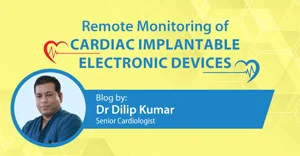The replacement of one or more heart valves with an artificial heart valve or a bioprosthetic is known as valve replacement surgery (homograft from human tissue or xenograft e.g. from pig). It’s a viable alternative to valve repair. There are four types of heart valve replacement surgeries.
Free Doctor Assessment
What is a Heart Valve Replacement?
Our heart is made up of four sections. Each section is divided by four main valves. These valves are the mitral valve, the tricuspid valve, the pulmonary valve and the aortic valve. Each valve has flaps, which are called leaflets for the mitral and tricuspid valves and cusps for the aortic and pulmonary valves, respectively. During each heartbeat, these flaps should open and close once. Blood flow through the heart to the body is disrupted when valves do not open or close properly. When the flow of blood through our heart gets disrupted due to the malfunctioning of these heart valves, a valve repair or reconstruction surgery is then required.
Therefore, an experienced surgeon performs a heart valve surgery to repair or replace a damaged or diseased heart valve or valves. Many surgical approaches, including open-heart surgery and minimally invasive heart surgery, can be used to repair or replace heart valves.
What are the Reasons for Valve Replacement?
Birth defects in heart valves are possible (congenital). It can also occur in adults as a result of a variety of causes and conditions, including infections and other heart conditions.
Problems with heart valves include:
- Regurgitation: Because the valve flaps do not close properly, blood leaks backward in your heart. This is most commonly caused by valve flaps bulging back, a condition known as prolapse.
- Stenosis: The valve flaps thicken or stiffen, and they may fuse together. As a result, the valve opening narrows and blood flow through the valve decreases.
- Atresia: Because the valve does not form, a solid sheet of tissue blocks blood flow between the heart chambers.
Symptoms that you may need Heart valve Replacement Surgery?
If one or more of your heart valves becomes damaged or diseased, you may experience the following symptoms:
- Dizziness
- Chest ache
- Breathing problems
- Palpitations
- Foot, ankle, or abdomen oedema (swelling) (belly)
- Rapid weight gain as a result of fluid retention
Our experts may also recommend heart valve repair or replacement surgery for other reasons that can be determined through more detailed diagnosis of one’s heart condition.
What are the Different Types of Heart Valve Replacement Surgery Performed at Medica?
One must understand that performing such kinds of repair or reconstruction surgery requires years of knowledge and precision. At Medica Superspecialty Hospital, Kolkata, our highly-skilled and experienced surgeons are familiar with the following types of heart valve replacement procedures:
- Aortic Valve Replacement / Repair
- Mitral Valve Replacement/Repair
- Double Valve Replacement
- Tricuspid Valve repair
- Stent-less Aortic Valve
- Replacement
- Aortic Root Surgery (Bentall’s Operation, ROSS Procedure)
- Congenital Heart Surgery
Our cardio team is also known in the region for our minimally invasive approach to such types of cardiac procedures. Consult with our experts to ascertain the right treatment for you or your family & friends.
The first valve replacement from a human patient was first performed in 1962
Seek help from an expert
Treatment at Medica
Our team of renowned cardiologists and surgeons diagnose and treat over hundreds of adults and children every year. We are also giving our best to provide treatment for highly complicated cases. Such kinds of procedures are usually done through the ‘open’ method or the ‘minimally invasive’ method. In case of a minimally invasive valve surgery, the trained professional uses much smaller incisions than open surgery or a catheter inserted through the skin.
When compared to open-heart surgery, the potential benefits of minimally invasive heart surgery include:
- Blood loss is reduced
- Infection risk is reduced
- Pain and trauma have been reduced
- Shorter hospital stays
- Faster recovery, and faster return to normal activities
- Smaller, less visible scars

Minimally Invasive
Surgery

World Renowned
Experts
EMI Facility
Available










